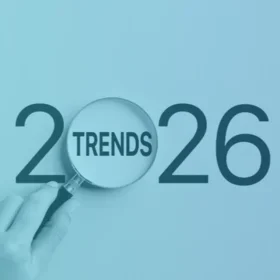In today’s rapidly evolving world of work, organizations that view human resources (HR) as merely a support function are being left behind. The most forward-thinking companies are reimagining HR as a strategic driver of growth, leveraging data, technology, and integrated systems to unlock human potential. At the forefront of this transformation is Columbia University’s M.S. in Human Capital Management (HCM) program, designed to prepare professionals to lead change using practical, market-driven insights. One of those professionals is Elson Kuriakose, a seasoned global HR executive and adjunct faculty member in the Columbia Human Capital Management program, whose career spans over two decades across companies like Google, IBM, Tata Hitachi, and Mahindra. With a passion for exploring the intersection of technology, human behavior, and organizational design, Kuriakose brings deep expertise—and a sharp eye on the future—to his approach.
In a recent interview with SPS, Kuriakose reflected on how the curriculum’s practical focus prepares students for shaping the new and emerging future of the global workforce.
How long have you been lecturing at Columbia, and what initially drew you to the HCM program?
I’ve been studying and practicing HR for over 20 years, and Columbia’s HCM program aligns perfectly with my passion and expertise. I’ve been teaching at Columbia for three years now, and I’ve supported the Digital HR and Workplace course, which explores everything digital in the workplace—HR technology, AI, other digital tools, and applications that impact the employee experience. We also bring in guest speakers and practitioners each year, making the courses very application-focused. Columbia is one of the best universities in the world, located in one of the greatest cities and accessible online, surrounded by incredible talent. There are very few places like it to teach and truly enjoy the experience.
“The new world of work” has become a common phrase post-pandemic—how would you define it, and what do you see as its most prominent characteristics?
It’s a convergence of several major changes: rapid technological advancement, particularly AI, combined with a fundamental renegotiation of how work is done globally. The traditional concept of a workplace—defined by a specific time and place—is becoming increasingly irrelevant. Today, work can happen anytime, anywhere, with multiple people collaborating. This shift is also influenced by a multigenerational and global workforce, and now AI is taking on tasks once done by humans. These forces are reshaping how we think about the structure of work.
How do you think the HCM program prepares students to meet the demands of the new world of work?
The HCM program is very practitioner-oriented. Most students are working professionals, so they bring their real-world experiences into the classroom. It’s a melting pot of people from various industries, countries, and stages of career development, which adds incredible depth to the learning environment. Our curriculum is constantly updated with insights from industry leaders, and all our instructors are practitioners themselves. The program is designed to model real-life challenges and provide relevant, applicable solutions. Columbia SPS has built a truly remarkable ecosystem of resources and support.
From your experience leading global HR functions at companies like Google and IBM, how have expectations of the employee-employer relationship evolved in recent years?
Over the past two decades, employee expectations have shifted dramatically. HR used to primarily support business teams, but now it leads in driving real business value. Today, HR operates at the highest levels, contributing directly to revenue, market share, and strategic outcomes. Employees no longer expect to spend their entire careers at one company. They’re more vocal, especially in tech, and the tolerance for poor workplace behavior is very low. People want to bring their whole selves to work, and that brings both opportunities and challenges.
How can HR leaders effectively balance the increased focus on flexibility and wellbeing with the demands of business performance and productivity?
This is a major debate in the field. Some companies believe employees should only bring their “work selves” to the office, while others embrace the idea of people bringing their whole selves. There’s also a philosophical divide: are we a team coming together to get things done, or a family supporting one another? Hybrid and remote work continue to raise questions about culture, collaboration, and accountability. Gen Z is influencing the conversation around work-life balance and flexibility, which in turn affects employee retention and engagement. HR leaders have to navigate all of these dynamics carefully.
As AI and other emerging technologies rapidly reshape workplaces, how should organizations approach talent development and reskilling to remain competitive?
With any new technology, there is a tendency to overestimate its short-term impact and underestimate its long-term implications. Not all AI applications are commercially viable yet, but the foundational impact is clear. While there’s a lot of hype, meaningful adoption takes time. Many tech companies are already using AI to handle tasks like soft coding and administrative research. Things that used to take hours can now be synthesized in minutes. This space is evolving rapidly, and companies must invest in upskilling to keep up.
Are there any emerging trends or shifts on the horizon that you think leaders and organizations should start preparing for now?
Currently, we’re seeing the pendulum swing between extremes—between fully remote and fully in-person work, and between loose and rigid performance management systems. I believe in the next few years, we’ll have more data to help us strike a balance. The conversation is currently very polarized, but hopefully, more wisdom and insight will emerge over time. Technology is going to accelerate beyond what most of us can imagine.
About the Program
The M.S. in Human Capital Management at Columbia University prepares graduates to be world-class HCM strategists able to address changing needs in building and motivating talented, engaged workforces in the private, public, academic, and not-for-profit sectors.
The program is available part-time, full-time, on-campus, and online. Learn more about the program here.


